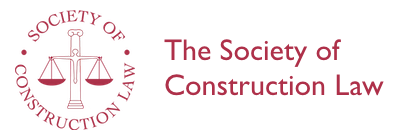Causation in Construction Law: The demise of the 'dominant cause' test?
Vincent Moran QC
November 2014
A paper presented to the Society of Construction Law at meetings in Reading on 8th May and Glasgow on 15th May 2014
In claims between construction parties for an extension of time and/or payment of liquidated damages for delay, assertions that both parties have contributed to the delay are common. Since few standard form contracts make clear when such delay is truly 'concurrent' and how the court should deal with such a situation, case law has to fill that gap. Vincent Moran QC traces the different concepts the courts have developed, arguing that the 'dominant cause' approach is now being replaced in English law by a different 'effective cause' approach.
Introduction - Causation in claims for damages for breach of contract - The test for causation in claims for damages in negligence - The causation problem in claims under construction contracts - The meaning of 'concurrent delay' - The 'dominant cause' approach - The Malmaison approach to concurrent delay - The problem with the current consensus - What about apportionment? - A new test? - Conclusions.
The author: Vincent Moran QC is a barrister at Keating Chambers, London.
Text: 21 pages
